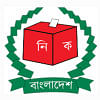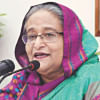AL, BNP Prepare for Next Polls: Searching for new members
Two years ago, BJP, the ruling party in India, claimed to be the world's largest political party with 8.8 crore members, surpassing the Communist Party of China, which has 8.6 crore.
This goes to show that even the largest parties in the world were able to keep records of their members.
Things are, however, different in the Awami League and the BNP, even though they are quite small compared to the BJP. The leaders of the parties only say “a few millions”, when asked how many members they have.
The two parties are now on a mission to recruit new members ahead of the next general elections.
On May 20, AL President Sheikh Hasina inaugurated the party's drive to recruit new members and renew existing memberships while BNP Chairperson Khaleda Zia did the same for her party on July 1.
However, neither AL, nor BNP has records of their existing members, who pay membership fees that go into the party coffers.
The parties' constitutions say the records are required. In the absence of records, the processes of renewal of memberships and disciplining unruly members become faulty.
Even though membership fees are small (Tk 20 every three years for AL and Tk 10 every year for BNP), the records should be important for the parties.
Records of memberships indicate the places where a party is strong and where it is weak, which helps top leaders decide on strategies and deploy resources as needed.
For example, when the BJP leaders claimed in March 2015 that it was the largest party in the world, they said they had gained a huge number of members in Uttar Pradesh where it had not been in power for 15 years.
This allowed the BJP to aim at forming the state government on its own by winning 2017 state assembly elections. It eventually won 312 of the 403 seats.
But major parties of Bangladesh are more interested in recruiting new members and renewing existing memberships than keeping records.
AL DRIVE FOR NEW MEMBERSHIP
The AL has temporary and permanent members.
If members do not pay the triennial fees, they could lose their memberships but party officials have no idea how many members pay the fees since they have no record.
AL sources said almost every day its 77 organisational district units collect forms and receipts from the party president's Dhanmondi office for recruiting new members and renewing memberships, but the units do not return those.
According to the party sources, the ruling party is now aiming for first-time voters and to bring them under the party umbrella before the 2019 national elections. It also puts emphasis on recruiting women.
Talking to The Daily Star, AL presidium member Faruk Khan said they were not satisfied with the recruitment progress and hoped that it would accelerate now as the month of Ramadan has ended.
Faruk said, “We did not set any target … we will collect as many as we can.”
After the AL assumed power in 2009, several thousand BNP-Jamaat men were believed to have joined the party, apparently to have their names off politically motivated cases and avoid potential harassment by law enforcers.
While inaugurating the member recruitment drive, Hasina warned party grassroots leaders against allowing any “bad elements” into the AL.
AL insiders, however, said efforts to stop such infiltration might not be very effective due to the lack of records and databases.
BNP TARGETS ONE CRORE NEW MEMBERS
According to its charter, BNP headquarters must have a database of its members with their addresses. All its organisational district units also have to have the same.
Ruhul Kabir Rizvi, senior joint secretary general of the party, told The Daily Star, “We have a database of the party's executive committee members but we do not have any database of primary members.”
Rizvi, who is also an office secretary of the party, said the BNP has millions of activists and supporters across the country and it was difficult to keep their records in a database.
Asked if the BNP maintains any list of its primary members, almost all organising secretaries of the party replied in the negative. None of them could specifically say how many members their units had.
The party had taken an initiative to make a digital database of its members.
Rizvi said they would try to make that happen this year.
On August 16, 2010, the BNP began its drive for fresh members (primary members who will become permanent members in one year's time) and renewal of existing memberships. It had set a target of 5 million members but the party did not know what that drive achieved.
This time, the BNP aims at recruiting one crore members in two months.
EXPERTS SAY
Former Dhaka University vice-chancellor Prof Emajuddin Ahmed told The Daily Star that it was essential for any political party to have a database of its members and that it was a key to ensuring discipline.
He believes political parties launch member recruitment drives ahead of elections only to allure young voters or the first-time voters.
Emajuddin, a political scientist, hoped that the two major parties would make their databases after completing their drives.
Iftekharuzzaman, executive director of Transparency International Bangladesh (TIB), said, “Membership drives of our political parties are more often an election-related affair rather than a part of any well-designed strategy to build institutional capacity of the party.
“There is rarely any effective membership policy anchored on political ideology. It is usually for short-term electoral advantage rather than for developing organisational and leadership capacity and structure.”



 For all latest news, follow The Daily Star's Google News channel.
For all latest news, follow The Daily Star's Google News channel. 








Comments